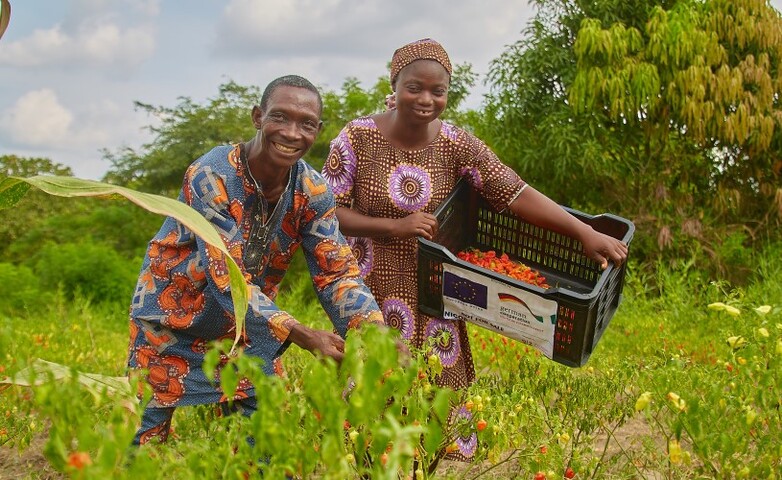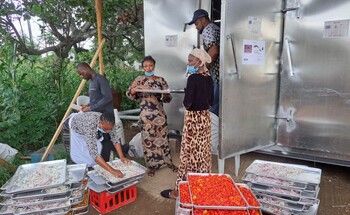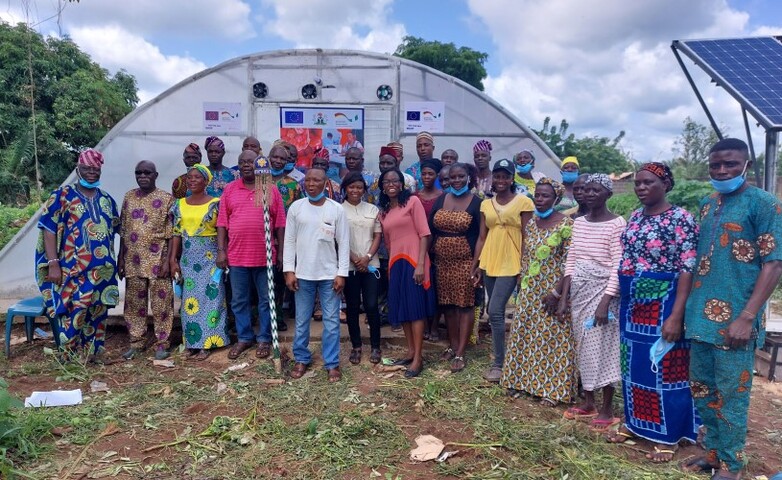Transforming agriculture for a more resilient rural economy in Nigeria
Transformative Agricultural Systems for Rural Economic Development – TARED
-
Client
German Federal Ministry for Economic Cooperation and Development (BMZ)
-
Co-financier
European Union (EU)
-
Country
-
Political sponsors
More
-
Runtime
2024 to 2028
-
Involved
Farmer associations, cooperatives and clusters; Ministry of Livestock, Nigerian Investment Promotion Commission, Federal Ministry of Industry, Trade and Investment
-
Products and expertise
Rural development
 © GIZ
© GIZContext
Nigeria, Africa’s most populous country and leading economy, grapples with major obstacles. Despite its natural resources, agricultural productivity is low, with minimal value addition and processing. Annual agricultural production growth of 2.5 per cent lags behind the population increase of 2.6 per cent, contributing to food insecurity. Climate change, environmental degradation, and limited access to decent jobs exacerbate rural poverty, drive urban migration, and fuel irregular migration. Rising food prices and soaring costs of agricultural inputs further disrupt food security and economic stability.

Objective
Agricultural production has increased, post-harvest losses have been reduced, and food security has improved, with the creation of lucrative employment opportunities benefiting women and youth in rural Nigeria through climate smart systems.
Approach
The project supports small farmers, micro, small, and medium-sized enterprises in rural regions, as well as their interest groups and producer associations. It implements the following measures to enhance rural economic development by integrating a value chain approach with rural economic development strategies and inclusive development principles:
- Improving production quality and yield as well as developing processing capabilities to foster new businesses that adopt climate-resilient practices, enhance bio-diversity, and combat desertification and deforestation;
- Creating employment opportunities across all stages of the value chain, focusing on women and vulnerable groups;
- Developing processing facilities that meet European Union (EU) standards for decent work and product quality, improving export potential.

Last update: March 2025







